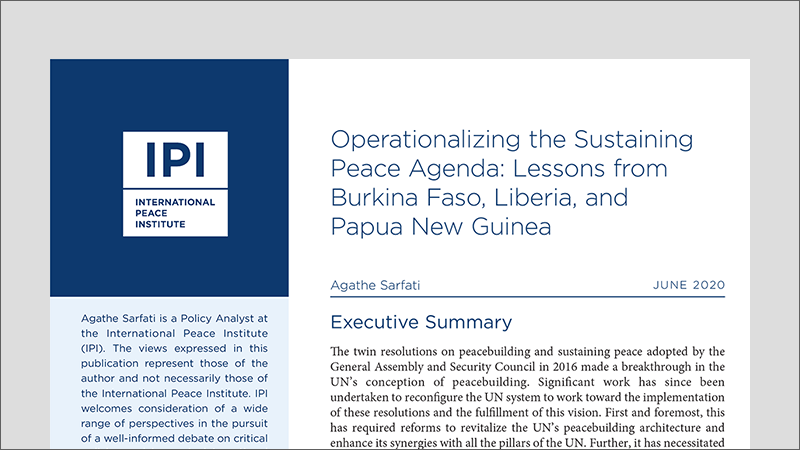
The twin resolutions on peacebuilding and sustaining peace adopted by the General Assembly and Security Council in 2016 made a breakthrough in the UN’s conception of peacebuilding. Significant work has since been undertaken to reconfigure the UN system to work toward the implementation of these resolutions, and the UN Peacebuilding Commission has launched a comprehensive review of the peacebuilding architecture to be completed in 2020.
To inform this review, this issue brief synthesizes findings related to the operationalization of the peacebuilding and sustaining peace resolutions at the country level. These findings emerged from three case studies published by IPI on Liberia, Papua New Guinea, and Burkina Faso. The operationalization of sustaining peace is assessed across four areas: (1) operational and policy coherence; (2) leadership, accountability, and capacity; (3) financing; and (4) partnerships.
The paper concludes that much of the focus to date has been on improving the effectiveness of how the UN delivers its mandates on peacebuilding and sustaining peace. To fully realize the vision of the sustaining peace agenda, its operationalization must increasingly focus on the impact of these efforts. This requires questioning and testing the theory of change underpinning these operational reforms to ensure the UN is effectively helping societies build the foundation for sustaining peace.







